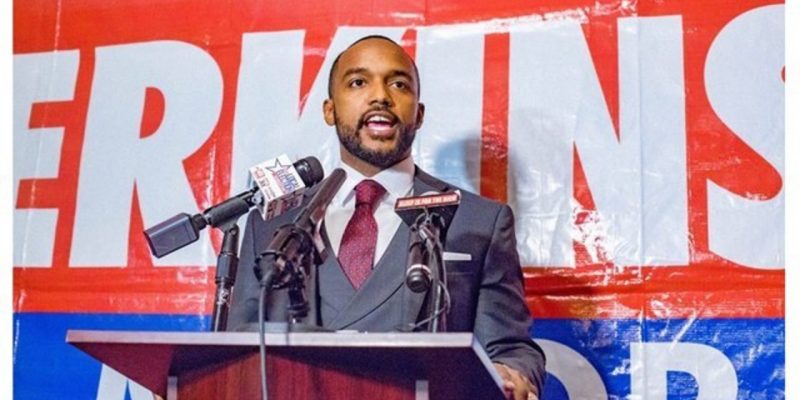The week of wackiness in Shreveport will push aside for the moment more analysis of the just-concluded back-to-back sessions of the Louisiana Legislature.
This space this week already has vetted the aspirations of an area state legislator to aim low and miss as well as the whininess (affirmed by their reaction to even-handed broadcast news about their activities) of cut-rate merchants of hate. But the news that Democrat Shreveport Mayor Adrian Perkins intends to offer the city as an experiment for a universal basic income was too good to pass up.
Earlier in the week, Perkins announced this, a part of a consortium of other mayors – all Democrats – who will follow what appears to be the Stockton (CA) Economic Empowerment Demonstration, where a leftist nonprofit called the Economic Security Project is fronting enough money to give $500 a month for 18 months to 125 adults in a particular neighborhood who make below the city’s median income. (This group receives funding from the group that started the States Newsroom, the umbrella organization of leftist news agencies in state capitals the Louisiana version of which came online last month.) If done similarly, this means about $1.125 million will find its way into the pockets of select Shreveporters.
The universal basic income version the group backs is its most extreme version, where the cash acts as a bonus to all other government benefits someone may receive. In that sense, it simply becomes welfare masquerading as an entitlement with no demonstrated economic benefit.
Research confirms the desultory effects. In experiments in Finland, where the unemployed were given the roughly $600 monthly benefit if they eschewed other government benefits, and in Ontario, where low-income households if eschewing most government benefits and paid half of any other earned income in taxes could receive around $13,000 to $18,000 annually, each proved too costly, and rigorous analysis of the Finnish experiment showed it didn’t encourage work.
The effort Shreveport likely will undertake doesn’t even pretend to target traditional welfare recipients and is just flat out wealth redistribution without any reduction in welfare payments. If a feature of national policy, it would cost a staggering $1.2 trillion extra a year on top of the nearly $5 trillion current budget. This would create two deleterious impacts: siphoning this money, almost all of it from just half of the population (with the top one percent paying a staggering over three-eighths of total American income taxes), from the most value-, and therefore tax revenue-, creating segment will cause a decline in productivity exacerbated further by others who will cease working or cut back on it as a result of the free money.
Advertisement
Simply, this is unsustainable. Backers of this extreme version just don’t understand human nature nor can define properly poverty. While many people might not cut back on work or benefit consumption, some would, preferring to take from others for a sure if minimal income than to exert themselves (or eschew criminal activity) to achieve more.
Similarly, poverty is not defined by insufficient money assets, meaning that a simplistic boosting of these solves for it. Rather, poverty is defined as an inability to achieve sufficient wealth because of a value set and policy incentives to maintain it inappropriate to lifting oneself past a certain level of wealth. Any government policy that doesn’t encourage activities that spur wealth creation – such as work, saving for the future, attaining education, and eschewing current consumption on things not necessary for any of the above – perpetuates poverty.
Basic poverty policy should permit able-bodied people who work diligently, or who are unemployed through no fault of their own, adjusted for the presence of children in the household, to have the bare necessities. Possibly a UBI policy that substitutes for welfare – say $18,000 annually for an adult or $30,000 per married couple with the provision they must buy health insurance, and then $6,000 for the first child, $4,000 for the second and $2,000 thereon (increased amounts if children of married couples), for those who make less than those amounts paid up to those amounts (and none tax-free) – not only meets this criterion but also probably would save compared to current government welfare.
The SEED plan (promulgated in the city whose spendthrift ways made it the largest city in American history to go bankrupt almost a decade ago) ignores this reality and thusly won’t reduce poverty but quite likely will pare tax revenues; we await the confirming data. If a private group wants to throw away its money this way, let it, but Perkins would stoop to a new level of idiocy to want to commit future tax dollars to a scheme based on politics, not sound policy.
Advertisement
Advertisement

